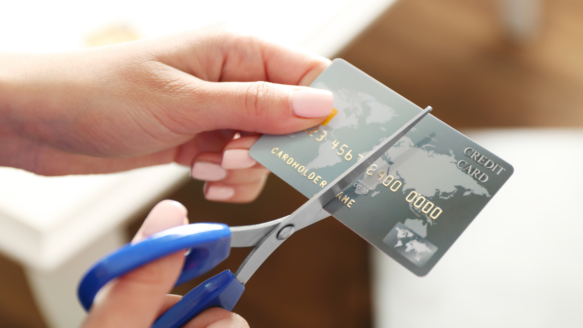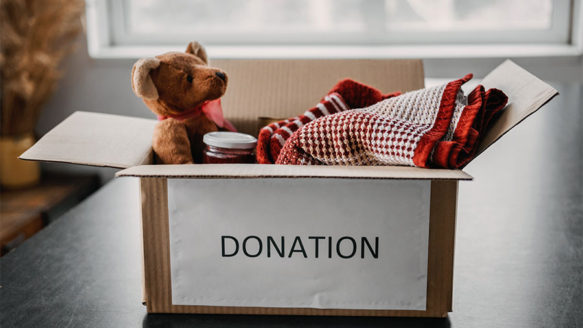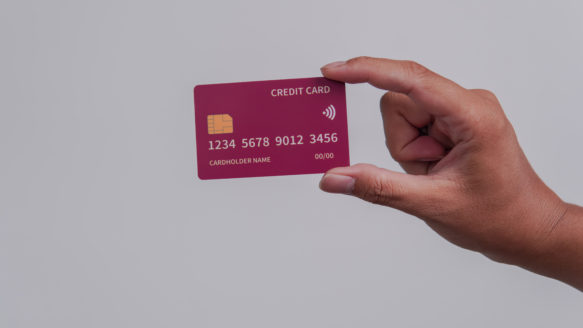
The Cash-Only Budget
By now you’ve probably heard a lot about the cash-only budget. This method of spending can be highly effective and change the way you spend forever. That’s because this challenge urges you to purchase all your food, coffee, clothes, entertainment, etc. using only cash. For those who need to curb their spending or see exactly where their money goes, this is a great financial challenge to try out!
How to live on a boring budget
That’s right, we said it. Saving is boring. Saving doesn’t include that new restaurant you’re dying to try out or your favourite pants in this season’s colours. Saving money is the very definition of not spending, so how can you find the fun in a self-imposed financial lockdown? If we’re being honest, maybe you can’t. At least, not how you currently define fun. But what if, for one year, you simply skipped a few of the big money-sucking events and activities that pull your budget into panic mode? The pandemic gave us pause and the opportunity to identify what we truly value, and could it be that it’s not about the money and the things, but rather about human connection?
Plan movie nights at home with friends (because we can do that again!), make popcorn instead of buying snacks, and set a budget for the weekend where you’re more likely to socialize than spend. This is where that cash budget comes in. If you have an envelope with cash allotted for weekend fun, then you have to creatively define how to stay within that amount because there are no debit cards or credit cards to back you up. Adapting your habits with small changes can result in big savings.
So how can you switch to a cash-only budget? We’ve rounded up our five best practices below!
5 tips for a cash-only budget:
- Make a cash budget
Before taking any money out of the bank, first take a look at your finances and make a cash budget. Review the past few months to determine how much money you typically spend in certain categories like groceries, shopping, entertainment, restaurants/take out, gas, etc. If you have a specific goal in mind (like you want to cut down your grocery bill), work that into your cash-only budget. Once you’ve narrowed down your expenses, decide whether you plan on taking out exactly that much money in dollar bills on a weekly basis or for the full month.
Pro tip: If using cash for all categories is too intimidating right now, start small. Choose one category that you want to monitor your money in and go from there.
- Use envelopes to manage your money
The easiest way to ensure you’re not overspending in one category using a cash budget is to use envelopes to manage your money. Depending on how many expenses you’ve allotted yourself, categorize envelopes and then put that month’s money into each one.
Pro tip: At the end of the week/month, take the remaining bills out of the envelopes and put them directly into your emergency savings account!
- Hide your bank and credit cards
How do you resist the urge to use your credit cards or debit cards? Simple―you keep them hidden. Try to put your credit and debit cards somewhere safe and out of view so you’re less likely to grab them on your way out the door or to pay your Skip driver. This will also help you to start chipping away at your credit card debt without it growing more!
Pro tip: If you’re like some of us, you may have memorized your credit card information for quick and easy online shopping. Don’t fall back onto old habits! Lock your credit cards through your online banking or credit card portal so you can’t use them. (Don’t worry, you can always unlock them if you absolutely need to.)
- Plan your budget ahead of time and bring only what you need
Before going out, figure out how much money you plan on spending and then only take that much cash with you out of the appropriate envelope. This will help you to not overspend at the grocery store or give in to shopping (or coffee) impulses!
Pro tip: Don’t be afraid to say “no” to yourself and others!
- Adjust your cash budget
Maybe when you had originally set up your budget, you didn’t allocate enough money for groceries. Or maybe you’ve realized that now that you’re more aware of your money, you’re not buying as many “wants.” Whatever it may be, don’t be afraid to re-adjust your budget! Nothing is set in stone forever and to make this a regular part of your financial lifestyle, you need to feel in control. Make the changes necessary to make this cash-only diet successful for you.
Pro tip: Start a money diary so you can keep track of your money better. That way you can easily review your finances at the end of the month and adjust your budget as needed.








